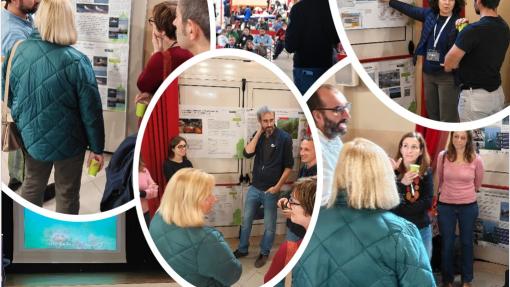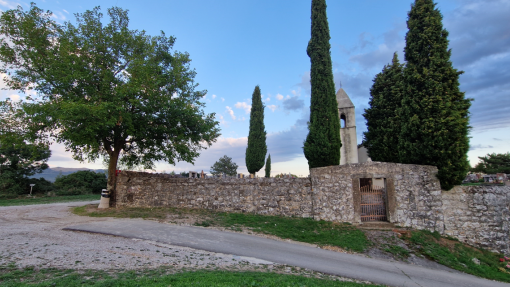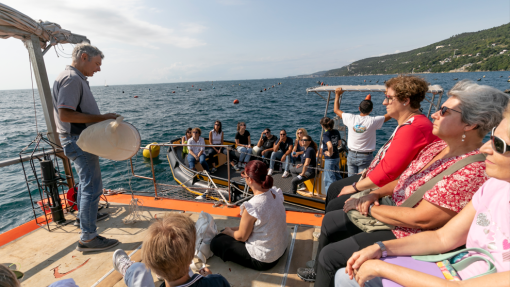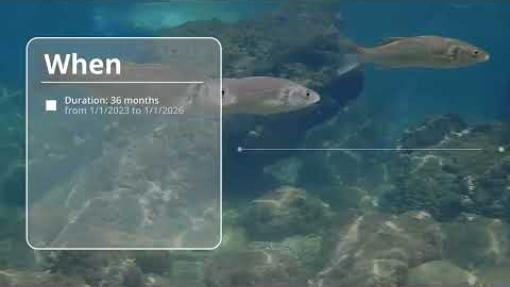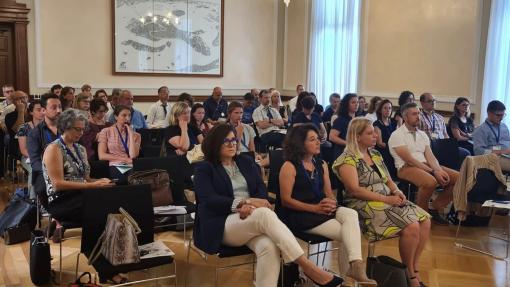
POSEIDONE
Specific objective: SO7 – Enhancing protection and preservation of nature, biodiversity, and green infrastructure, including in urban areas, and reducing all forms of pollution.
Typology: project of strategic importance
The POSEIDONE project is aimed at the functional area of the northern Adriatic Sea, from the city of Chioggia (Italy) to the Slovenian coast. The general goal of the project is the promotion of local development by favoring the protection of nature and biodiversity, the development of green and blue infrastructures in Natura 2000 sites, the reduction of tourist pressure on natural parks or natural areas, the improvement of the landscape by the promotion of biodiversity in agriculture, the protection of native species and the dissemination of knowledge.
A greener and CO2-free Europe is the policy objective underlying the project, which takes into account the fight against climate change through the protection and implementation of biodiversity and green and blue infrastructures.
The challenges the project aims to address are concerning about:
partnership’s joint actions implementation in order to mitigate the climate change in the management sector of protected and unspoiled natural environment areas;
biodiversity’s and green and blue infrastructures improvement’s implementation for reducing air pollution and CO2 emissions;
protection of biodiversity in order to encourage the diversity of landscapes, including agricultural ones.
In addition, a better waste management governance will be developed through awareness and cleaning campaigns on both sides of the border. The cooperation between territories involved in the project is a meeting and discussion opportunity about common issues.
Innovation in the workflow will be supported in order to obtain common solutions about institutional technic capacity strengthening and the transfer of knowledge with the aim of finding a management strategy of natural and protected areas that are sustainable and innovative.
The main outputs that the project wants to obtain are:
joint cross-border actions: high training days on the Goletta Verde boat along the Northern Adriatic Sea coast (area of project) about new technologies for offshore monitoring and in addition data collection for WP1 related monitoring activities; set up of a shared calendar between the Italian and Slovenian partners on the main actions of outreach and cleaning of the sea, the coast, rivers and natural areas with the involvement of local populations (D.2.1.2 & D.2.1.3) (RCO81);
drawing up a cross-border strategy for the identification and creation of new protected areas, with the aim of developing a cross-border vision (methods and criteria) in order to identify measures that stop, slow down or reverse the loss of biodiversity and, at the same time, to mitigate the impacts generated by climate change for increasing the protection of high value habitats and species populations (D 1.4) (RCO83);
set up of experimental pilot actions of floating platforms for stopping seabirds, restoration activities across flat islands and conservation of native plant varieties (D.2.3.4, D.3.3.1) (RCO84).
The project will contribute to the sustainable development of the territory on a macro-regional crossborder scale, promoting the protectionof biodiversity in natural and protected areas. The main results of the project will be the improvement of biodiversity along the Northern Adriatic Sea coast. This will be possible through:
the implementation and protection of green and blue infrastructure
the implementation of tools for sustainable tourism planning;
the promotion and enhancement of the territories
the protection of the natural and agricultural landscape.
The partners’ cross-border cooperation approach will be based on mutual collaboration on dealing with the common challenges and on defining the long-term goals, starting from the capitalization of the previous experiences.
The effectiveness of cross-border cooperation approach, which enriches the cognitive and experiential path, is linked to:
the greater effectiveness and stability of the outputs produced by the project,
the implementation of protected areas and
the exchange of good practices applied in the various areas involved.
The POSEIDONE project will focus on the following actions:
- Strengthening of institutional technical skills and knowledge transfer with the aim to identify and promote innovative eco-sustainable management strategies for water and beach quality and implement knowledge and monitoring of climate change effects on identified coastal environments, as a basis to plan the necessary mitigation and adaptation measures;
- Collaboration between institutions and private operators to study coordinated systems against beach erosion and to improve floodwater runoff through integrated inlet management systems;
- Monitoring of coastal habitats important for biodiversity and planning of interventions to remove the causes of environmental alteration.
The main outputs that the project wants to obtain are:
joint cross-border actions: high training days on the Goletta Verde boat along the Northern Adriatic Sea coast (area of project) about new technologies for offshore monitoring and in addition data collection for WP1 related monitoring activities; set up of a shared calendar between the Italian and Slovenian partners on the main actions of outreach and cleaning of the sea, the coast, rivers and natural areas with the involvement of local populations (D.2.1.2 & D.2.1.3) (RCO81);
drawing up a cross-border strategy for the identification and creation of new protected areas, with the aim of developing a cross-border vision (methods and criteria) in order to identify measures that stop, slow down or reverse the loss of biodiversity and, at the same time, in order to mitigate the impacts generated by climate change with the aim of increasing the protection of high value habitats and species (D 1.4) (RCO83);
set up of experimental pilot actions of floating platforms for stopping seabirds, restoration activities across flat islands and conservation of native plant varieties (D.2.3.4, D.3.3.1) (RCO84).
